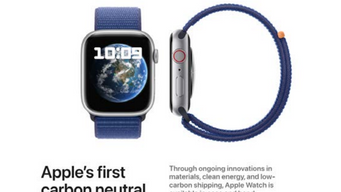As supply chain issues continue to impact the availability of products, there are serious concerns that this problem is only going to get worse as we head into the busy holiday shopping season. As you are planning your holiday advertising campaigns, there are some important legal issues to take into account if you're going to be promoting products that may not actually be available when consumers head to the stores or try to buy them online.
Sufficient Supply
As a general rule, you shouldn't advertise a product unless you have a sufficient supply of that product available to meet reasonably anticipated demand. If there are limitations on availability, such as that the product is only available for a certain period of time or in certain locations, or that there are only limited quantities available, those limitations should be clearly and conspicuously disclosed.
The FTC's Guides Against Bait Advertising advise that it's improper to promote a product if you do not have "available at all outlets listed in the advertisement a sufficient quantity of the advertised product to meet reasonably anticipated demands, unless the advertisement clearly and adequately discloses that supply is limited and/or the merchandise is available only at designated outlets."
Many states and municipalities have similar requirements. For example, California law says that it's unlawful to advertise products "with intent not to supply reasonably expectable demand, unless the advertisement discloses a limitation of quantity." And, New York City's rules are nearly identical.
This means that, if you're going to advertise a product, you've got to be sure that the product will be available in the places where consumers will expect to find it -- unless the advertising clearly explains what those limitations are. Remember, it's important to consider the advertising from the perspective of the audience to whom it's directed. If you're running national advertising, you're going to want to make sure your product is available nationally.
If you start to have unexpected supply issues, or if the product becomes unavailable, chances are you'll need to immediately pull the advertising. This means that you need to be paying attention to the supply issues far enough in advance so that you're not in a position where you've got advertising running for weeks, that you can't stop, that is promoting products that aren't in stores.
Don't assume that disclaimers are going to solve this problem. While a disclaimer like "while supplies last" or "limited quantities" is nice to be able to point to when you have a sudden, unexpected problem, don't plan to rely on language like that if the advertising that continues to run is promoting a product that you know is not reasonably available.
Rain Checks
Some states and localities also require retailers to issue rain checks if an advertised product or offer isn't available, particularly when the retailer hasn't specifically disclosed the limited availability of the item in the advertising.
In Massachusetts, for example, retailers are required to provide to provide a rain check to prospective buyers at the time of the attempted purchase, when applicable. In Massachusetts, the rain check must disclose to the consumer when the rain check will be honored (which generally must be within two months) and how the consumer will know when the product becomes available. Retailers are also required to provide a reasonable period of time for consumers to redeem the rain check.
Often, in order to avoid state rain check requirements, retailers must follow specific requirements. For example in Ohio, rain checks are required unless the retailer can demonstrate that its predictions about availability were reasonable based on a number of specific factors, the minimum quantity available was disclosed in the advertising, the advertising clearly discloses that it's a special purchase (such as by promoting it as "special purchase" or "clearance") and that no rain checks will be given, or a comparable product (with comparable savings) is available.
Mail Order Rule
If you're selling products online (or by phone or mail as well), you must also comply with the FTC's Mail, Internet, or Telephone Order Merchandise Rule. The Mail Order Rule has several key requirements.
First, if you tell consumers when you are going to ship merchandise to them that is covered by the Rule, you must have a "reasonable basis" for your shipping representation. If you don't tell consumers when you're going to ship their purchase, then you generally have to ship within 30 days.
Second, if you are unable to ship within the required time period, you must notify the customer and give the customer the option to cancel. Depending on how long the delay is going to be, you have different options about whether the right to cancel can be treated as opt-in or opt-out. Importantly, you must notify customers a reasonable time after you learn about the delay and no later than the time that you said you would deliver.
Third, when an offer is cancelled, you must give the customer a prompt refund. And this means actually giving consumers their money back -- not a coupon or a gift card.
The Rule is actually quite complicated, so it's definitely worth reviewing the Rule itself. The FTC also has a very helpful business guide that explains how to comply. And, you really do want to comply -- since, if you violate the rule, you can be held liable for civil penalties of more than $43,000 per violation. With ever-increasing importance of e-commerce, the FTC has taken an increased interest in enforcing the Mail Order Rule over the last several years. (Recent enforcement examples include actions against Inmate Magazine Service,Trend Deploy, and SuperGoodDeals.Com.)


/Passle/5ca769f7abdfe80aa08edc04/SearchServiceImages/2026-02-18-14-00-21-297-6995c5f5406a38553e740583.jpg)
/Passle/5ca769f7abdfe80aa08edc04/MediaLibrary/Images/2026-02-26-16-39-16-774-69a07734185fc5a1d5c58cae.jpeg)

/Passle/5ca769f7abdfe80aa08edc04/SearchServiceImages/2026-02-18-13-57-55-621-6995c56329367800ecef51e1.jpg)